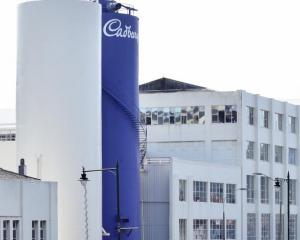As expected, the axe has fallen. Multinational Mondelez, a $30 billion revenue company with 107,000 staff, is ending chocolate manufacturing in Dunedin.
Concerted efforts to persuade the company to change its mind during the four weeks of "consultation" came to nothing.
Mondelez will have done its sums, have its strategies and so a relatively small factory in the south of remote New Zealand was doomed.
Once the initial announcement was made, a miracle was not going to happen.
This outcome, whatever the coating of soothing words, leaves a bitter taste. Supposedly, the factory was efficient, the workers first-rate and Dunedin’s climate suited chocolate-making.
All that counted for nothing, and the city’s long history in chocolate manufacturing will now end.
The taste must be especially bitter for the staff, many of whom are long-serving and some of whom lack easily-transferable skills.
And there are all the contractors and suppliers that spin off a large manufacturer who will lose custom and, potentially, the ability to employ all their staff.
Dunedin has been battered in past decades by similar blows as meatworks, a cement plant, kitchen and bathroom manufacturing and engineering workshops closed or wound down and then closed.
The Fisher & Paykel Appliance factory and 600 jobs in Mosgiel as recently as 2012 was one of the largest to close.
Despite these setbacks Dunedin has shown, and continues to show, remarkable resilience. It has continued to grow, albeit slowly, and other opportunities have appeared.
It was only a few decades ago that planners were mapping out how Dunedin would cope when it shrunk from about 90,000 people to towards 70,000. Instead, it grew steadily beyond 100,000.
While, through massive growth, the University of Otago was the "industry" largely responsible (student numbers climbed from 5000 to nearly 20,000 full-time equivalents) it was not totally the reason.
Even in the past few years, when university roll numbers slipped, the city has continued to at least hold its own. Tourism has in the past few years grown enormously. Dunedin’s lifestyle and beauty have attracted immigrants and many Dunedinites continue to live in the city even when much of their work takes them elsewhere.
Regularly, we read in this newspaper about small and innovative businesses designing, consulting and, yes, manufacturing from Dunedin.
With the passing of Cadbury and Fisher and Paykel Appliances factories, there might not be one manufacturer that is, by New Zealand standards, large-scale. But there are many smaller businesses doing their bit and even exporting to the world, whether it be physical products or software.
The key is often finding, maintaining and growing niche markets with quality offerings.
The university itself is showing signs of renewed growth. A healthy climb in first-year numbers for 2016 has been confirmed, and the signs are good for this year. The Otago Polytechnic goes from strength to strength.
Even in the ashes of Cadbury there is at least a modicum of good news. If Cadbury World, already attracting 110,000 visitors a year, is redeveloped it can perhaps employ about 60 people. If it is to contain a small chocolate-making plant and because of Cadbury’s Dunedin history, it can still play a role. Sixty is much less than the 360 at present employed, but every job counts.
It would be positive, too, if a home is found in Oamaru or the South for the manufacture of the relatively small lines of New Zealand specialties under the Cadbury brand, the Jaffas, the Buzz Bars, the Pineapple Lumps, the Chocolate Fish.
March 17, 2017 was a sad day in Dunedin’s history, and that should be acknowledged. Dunedin must now, however, move on and look to the future.












